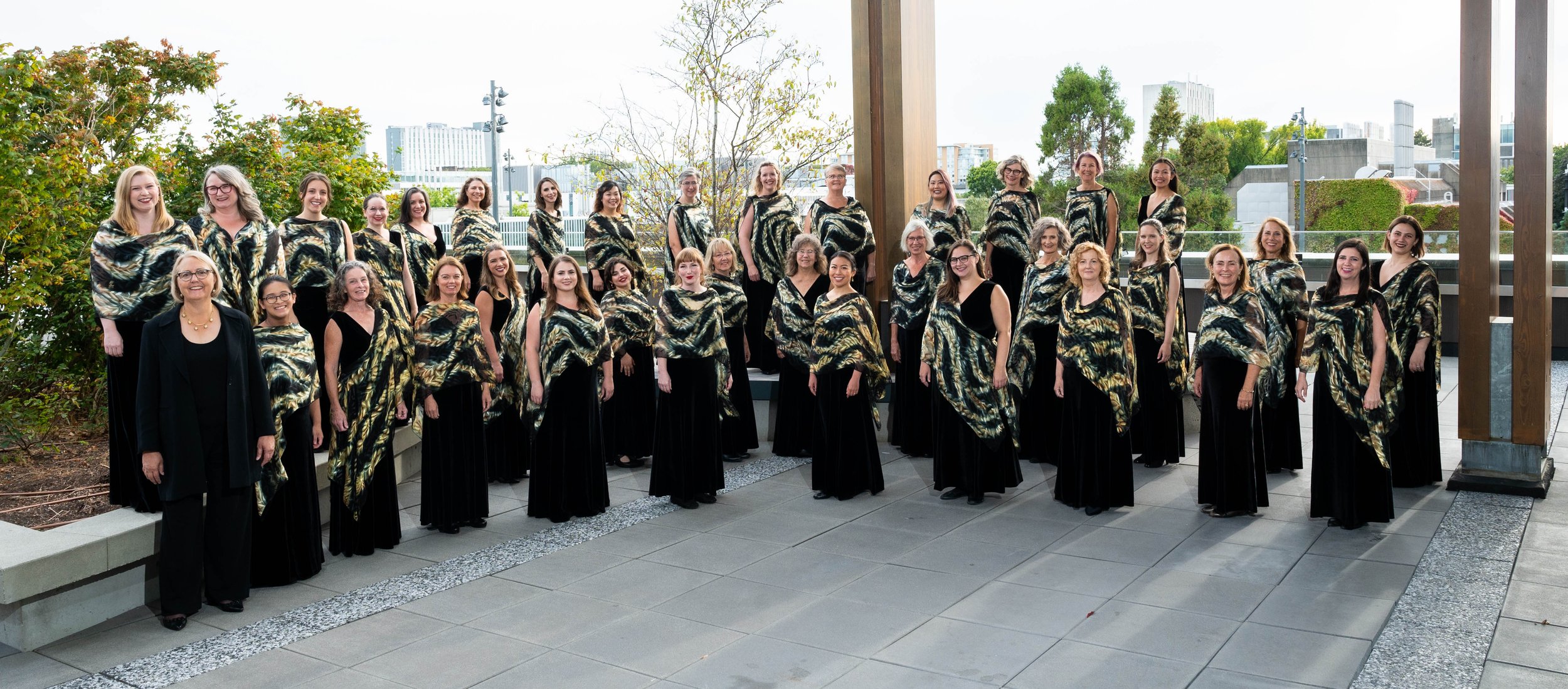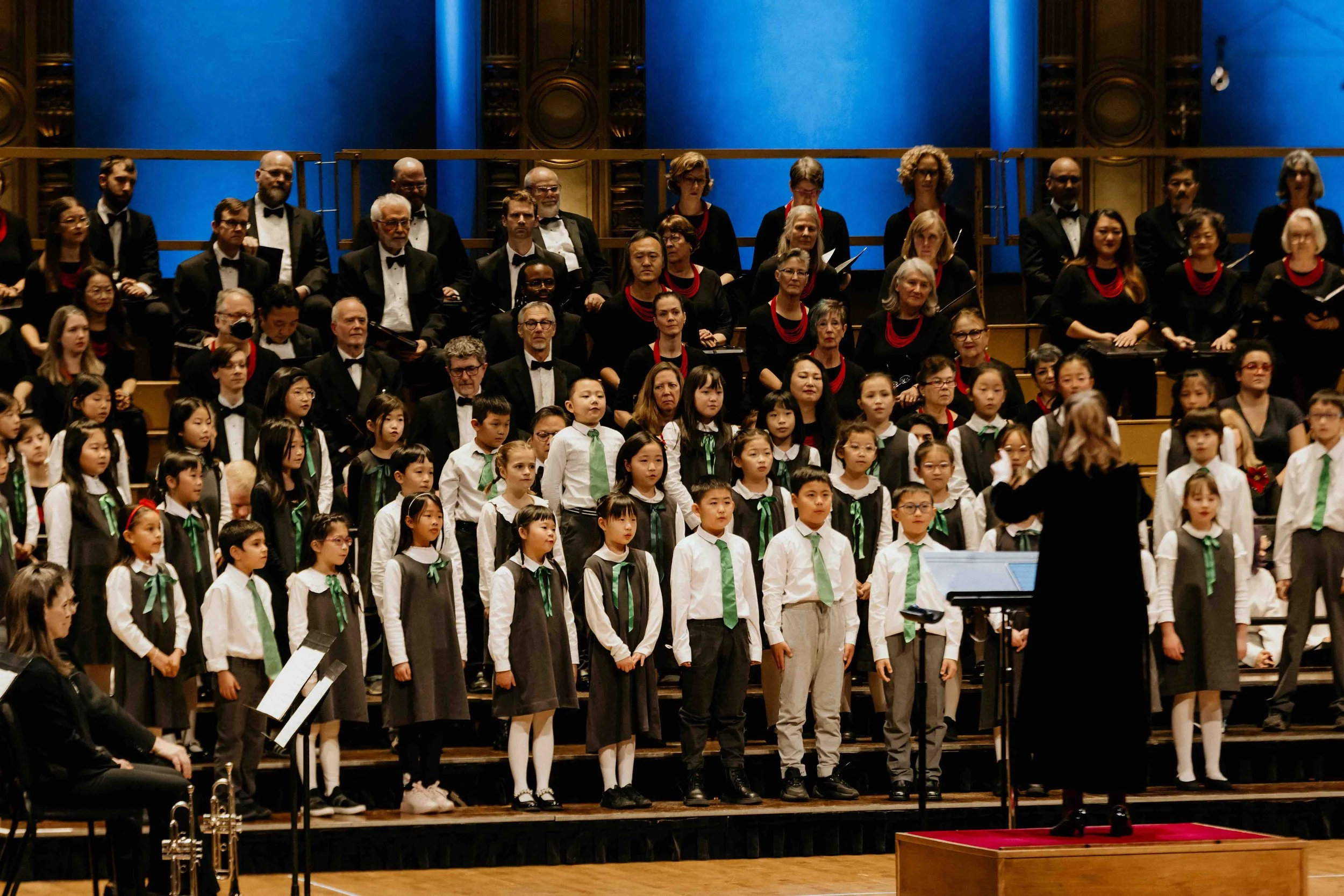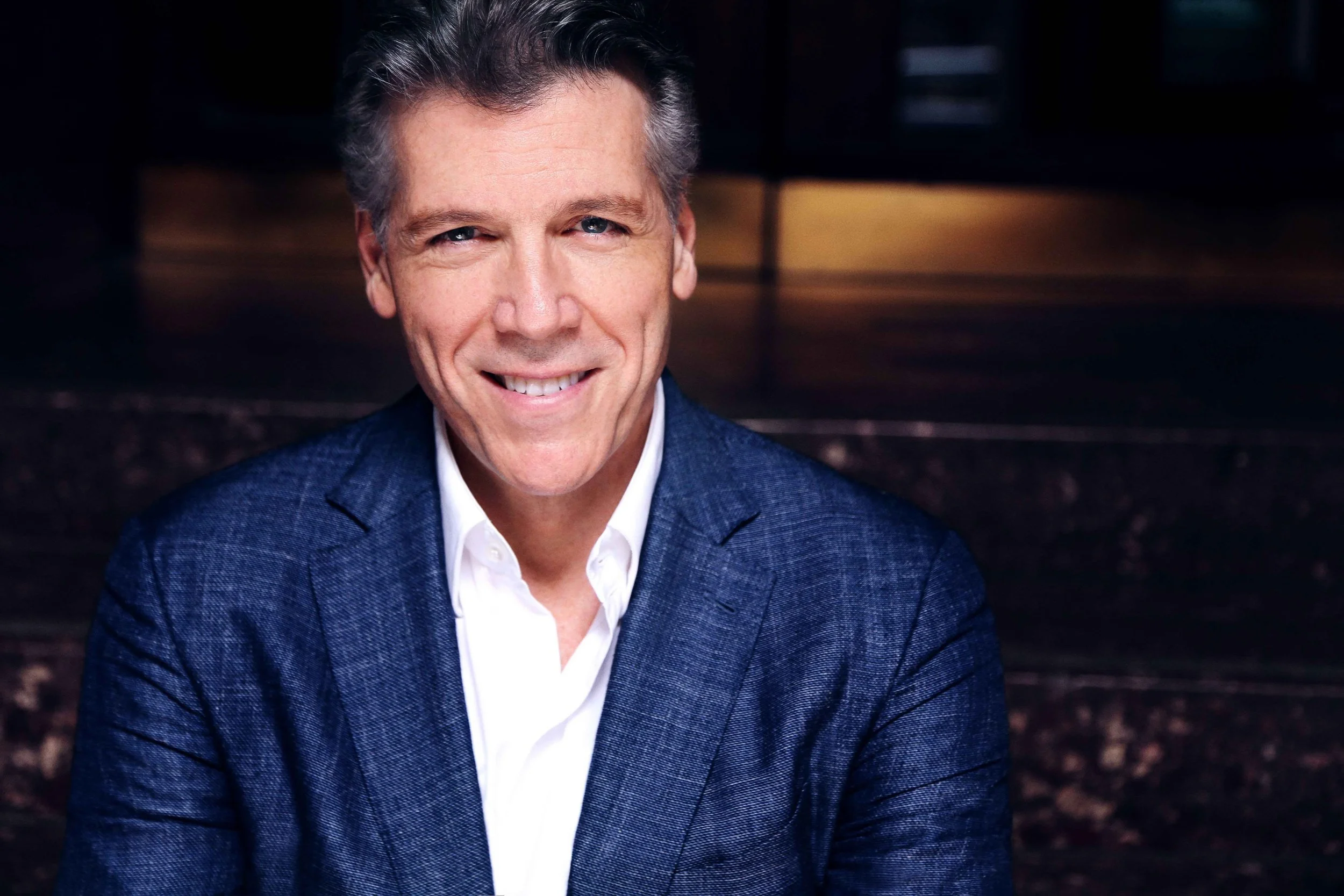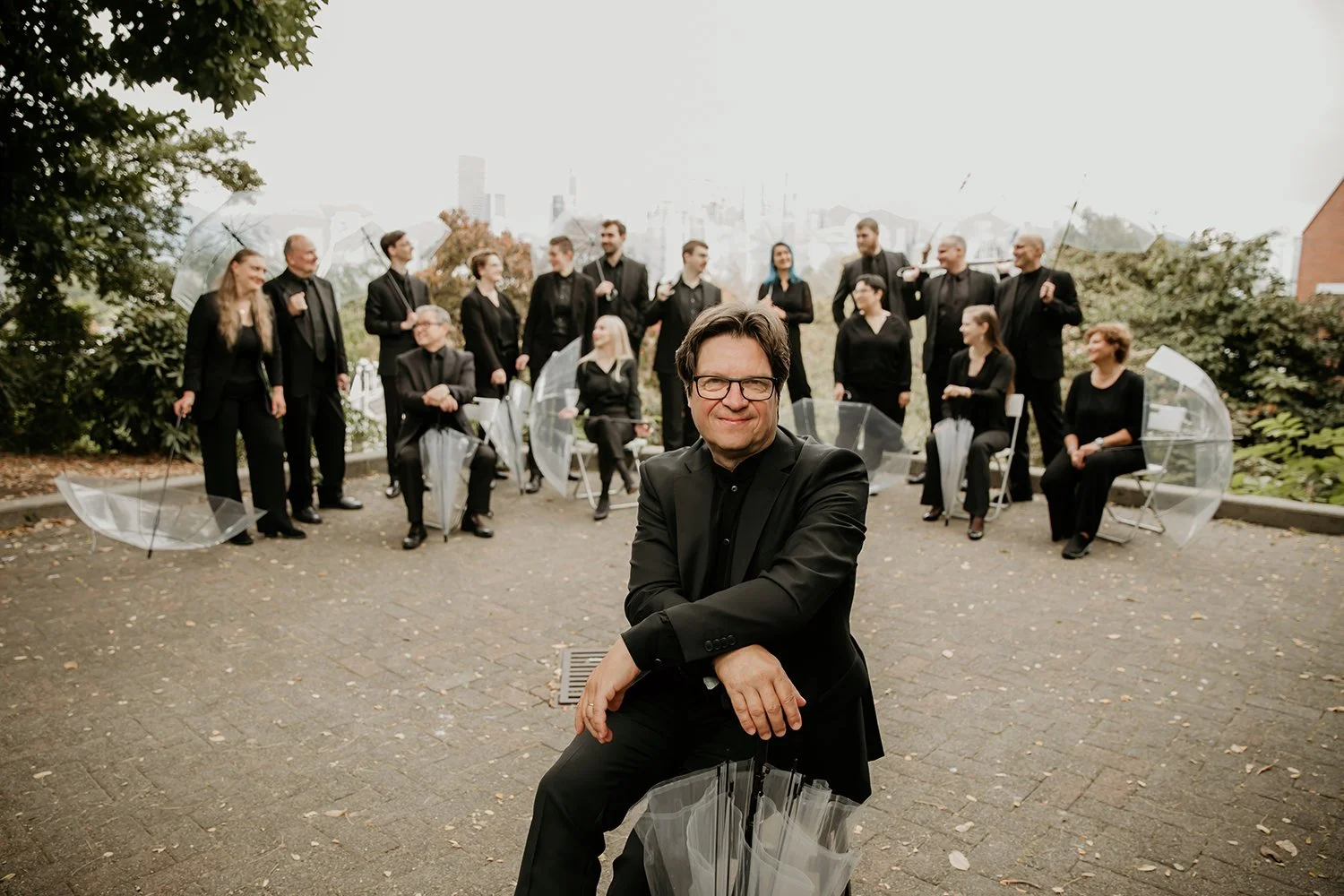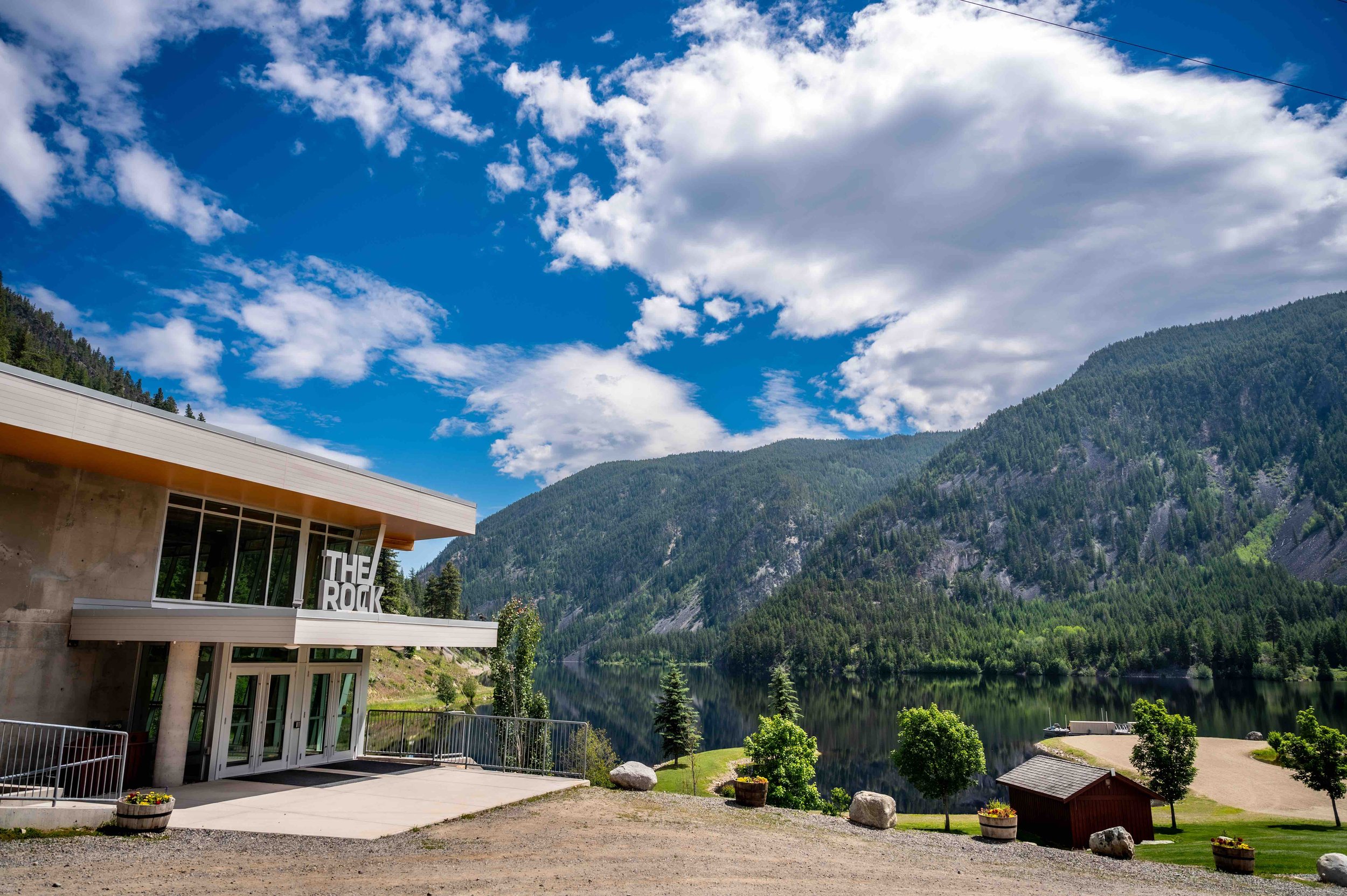Music review: Elektra Women’s Choir stirs up collective emotions in Humanity
Soulful and thoughtful, the concert combined a cappella singing with large-scale photographic projections
Elektra Women’s Choir. Photo by Wendy D Photography
Elektra Women’s Choir Humanity was reviwed on March 10 at Pacific Spirit United Church
FOR THOSE OF us who only recently began venturing back to see live shows, Elektra Women’s Choir’s Humanity: A Musical Exploration of the Human Experience felt like a reclamation. This wasn’t Elektra’s first post-pandemic concert, but it certainly served as a kind of reckoning with our collective trauma in a program of music that revisited the emotions we’ve all experienced since 2020.
The concert covered the isolation of lockdown, the longing for connection, and the power of hope. It did so in song but also in pictures, with projections of images by South Hazelton photographer Elizabeth Larsen featuring the people and nature of B.C.’s Upper Skeena region.
The evening opened with “No-One Asked Me”, one of three works by Edmonton-based composer Laura Hawley. Sonically a bit of a pop ballad, it was commissioned through the crowdfunded Sonic Timelapse project, which aimed to sustain the choral community during COVID-19. “No one asked me if I wanted everything to change/One day blends into the next” begins the text, built from reflections by conductors across Canada. The chorus repeats the words, “I feel it all, can you hear me?....When can I take your hand?” It’s not exactly subtle stuff, and when accompanied with images of children touching fingers, the effect risked tipping into the mawkish. Once this reviewer let go of cynicism, though, it ultimately proved quite stirring.
The other two Hawley pieces were more musically interesting. An arrangement of Joni Mitchell’s “Chelsea Morning” replaced the icon’s guitar with a cappella voices, dividing the choir into eight parts with layers of bap bap ba and chic-ka chic-ka supporting the melodic lines. In the concert’s second half, Hawley’s “The Secret Wisdom of Flowers” set eight poems about nature and, yes, flowers, to music. Of these, “The Heart of Night”, from a poem by Bliss Carman, was a standout. Its opening unison of voices slowly split in an evocation of the awe that comes from the night sky—with a shimmer of close harmonies gilding the last lines: “Lo, in their tent of blue/The stars above the hill!”
The sky also featured prominently in the world premiere of Natalie Fasheh’s “Ya Amar (Ode to the Moon)”, marking the first time Elektra has sung in Arabic. The singers, apart from soloists Danica Kell on soprano and guitar and Stephanie Ching on alto, began facing away from the audience. As Kell and Ching crooned their lullaby-like Middle Eastern infused lines, individual choir members turned to recite spoken words of reflection about living through the pandemic. The work ends with the lines, “We’re all pieces of the moon/So when the moon shines bright in the sky,/It glues us back together”—an insight that came to the composer during a lockdown and one that the singers further evoked by raising white circles of paper into the air.
Also compelling was Marie-Claire Saindon’s “The Girl with the Numbers”, a piece celebrating the Black NASA mathematician Katherine Johnson, who was immortalized in the 2016 film Hidden Figures. Throughout the work, the singers percussively sing numbers 1-1-1-3-3-3 that correspond to notes on the scale and bring to mind the workings of machinery. The lyrics repeat Johnson’s favourite question, “Why not?” ending with the lines, “Can a Black woman challenge/As a colleague, an equal/Can the ‘girl with the numbers’ balance the question and reach for the moon?/Why not?”
Works by Black American composer Zanaida Stewart Robles, American composer Libby Larsen, and Canadian composers Kathleen Allen and Susan Crowe rounded out the program’s modern repertoire, performed alongside much earlier works by Claudio Monteverdi and Edvard Grieg. It sounds eclectic, but by thoughtfully piecing them together to bring audiences through the emotions of longing, sadness, desire, connection, reassurance and, ultimately, joy—via music as well as Larsen’s pleasing images of landscapes and community—Humanity achieved what it set out to do: give voice to the tumult of emotions of being human in 2023.



